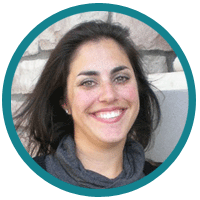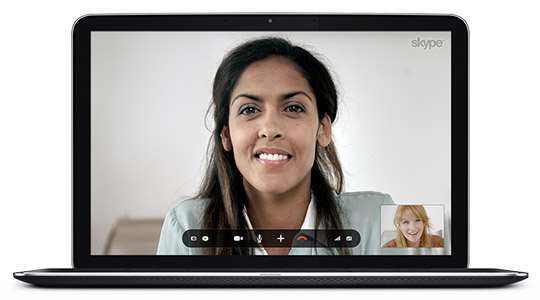Written by Davis Nguyen
When my family immigrated to the United States, they had $200 between the six of them. To save costs they would take any job that would accept them, mostly 16-hour factory shifts, and lived together to reduce rent even as our family expanded. At one point we had 11 people sharing 4 rooms and 1 bathroom.
Many of the common conveniences my friends had I didn’t and when you grow up poor, you often imagine what it would be like had your family been wealthy. Sometimes you look at more well-off families with envy. As a kid, I thought about all the negatives of my situation – eating instant noodles for the 5th time in a week does that to you – and when I started as a freshman at a college I felt inferior to my more affluent peers because I lacked the culture, the sophistication, and the elegance I saw they had.
I viewed my upbringing only through the lens of what I missed out on instead of what I gained. Only in adulthood am I beginning to see how my experiences growing up impoverished has positively shaped who I am and what I’ve been able to accomplish in my life.
13 Life Lessons I Learned Growing Up Poor
1. The more you give, the more it comes back to you
If you’re poor, most likely your friends are too and you either learn to look after one another or suffer together. When my family first came to the United States, they barely had enough to get by, but my grandmother Rose, the matriarch of our family, always opened our home to those who had even less than us. Sunday dinners were spent with people from all races and backgrounds and my grandma always made sure noone left hungry.
Years later, when my grandmother opened up her own nail salon in our neighborhood, her first customers were many of the families she welcomed into our home all those years earlier. The people my grandmother fed brought their daughters, their friends, and their co-workers. Many of them became my grandmother’s life-long customers and even though my grandmother is now retired, she still gets requests from them to give them manicures and is able to live comfortably in retirement.
When you are generous to others, others will be generous towards you.
2. Problems can be solved with creativity
When my family took our first vacation, we encountered a problem we hadn’t thought about before. Our neighborhood was known for high levels of robberies and we didn’t have an alarm system to protect the house while we were gone. My grandfather didn’t let this deter him from enjoying vacation with his family.
The day before we left, my grandfather closed all the blinds to prevent anyone from peeking in, put the radio on a Vietnamese radio station so it would seem people were talking from within the house, and he allowed our neighbors who normally parked in our street, to park on our driveway so it seemed that people were entering and leaving. When we came back from our vacation we learned that 2 homes had been robbed a street down, but our house had not been hit.
Growing up, learning to be resourceful became a regular part of my identity. When I moved to San Fransisco, a few friends and I wanted to have lunch at a popular restaurant that had an 1-2 hour wait unless you came with a reservation. But to make a reservation, you must have at least 10 people. I gathered a group of 10 friends and made a reservation for the following month. When the day of our reservation came, half of our group could no longer make it and informed me only as I was driving to the restaurant.
So the 4 of us that remained had to either find more people or lose our table and wait 2 hours. I decided to recruit people who were waiting without a reservation and asked if they wanted to join our group. The first 4 groups I asked rejected me, since we were pretty young, I imagine they thought we would run when the bill came out, but the 5th group I asked said yes and we had our table of 10, saving both groups a combined wait time of 2 hours. When you grow up poor, you’re forced to use creativity to solve your problems.
3. Comparing plate sizes is the fastest way to be unhappy
With such a large family and a small budget, my family only ate out on special occasions. Whenever we went out to eat I would always look at what others were eating. I envied how others could have lobster, crab, and even shrimp when my family only had rice and simple meats. When I was four and we were celebrating my aunt Quyen’s birthday, my aunt pulled me to the side and said, “only look at what others are eating to see that they have enough; never look at another person’s plate to see if you have more.”
Today, I earn more on my own than entire families make in a year, but even with a large income, I see how unhappy many of my co-workers are. They make 2-3 times more than the average American, but still consider themselves poor because they see and compare themselves to the person who has been at the firm longer or their friends who work at larger firms. When you look at what others have that you don’t, you are going to be unhappy no matter how much you have.
4. If you don’t ask, the answer is already “no”
When you are poor, you do a lot of asking. Asking for a discount, asking for work, asking for an extension on your rent. In asking, you learn that the worst response anyone could give you is a “no.”
When I was five, I wanted to learn how to ride a bike so I could join the other kids in my neighborhood instead of just watching them from the sidewalk, but my family couldn’t afford to buy me a bike.
One day, my dad saw that our neighbor had thrown out a used bike that was about right for my size. My dad saw an opportunity and walked to our neighbor’s house, knocked on their door, and asked if he could have the bike they had just thrown out. That used bike became how I learned to ride a bike and it was only possible because my dad had the audacity to ask to go through another family’s trash.
In high school, I made it a goal to win enough scholarships so that I could pay for college on my own and my family wouldn’t need to take out a loan. As I was applying for scholarships, I remembered how my dad knew the worst that could happen to him was someone tells him “no”.
Over three years, I made a list of 312 scholarships and applied to every single one of them. 281 rejected me, but the remaining 31 said yes and together equaled more than $1.2 million in scholarships, more than enough money to pay for any university that would take me. I only got to this point because of the lesson my dad had taught me earlier in life. The worst anyone could tell you is “no” and if you don’t ask, the answer is already “no.”
5. A good solution is better than a perfect solution
When my dad was still working on an assembly line, he was applying for his nail technician license hoping that he could join my grandmother’s nail salon, then our family business. Because he was working during the weekdays and got off too late to attend non-weekend classes, it would have taken him months to get his license.
To speed up his learning, he volunteered to give free manicures to all the women who worked in customer service and secretarial roles at his factory. When he took the licensing exam he had enough experience to pass and shaved weeks off his training saving him time and money. My dad’s solution wasn’t the most elegant but it solved the problem.
When I was applying for college, I knew I needed at high SAT score but I couldn’t afford to take the same SAT courses that other students were. As an alternative, I asked a student for a syllabus of the prep course she was taking. I found the books listed on her syllabus throughout various libraries in my state and asked my local library to borrow them for me.
When the books arrived, I spent the summer self-teaching myself the material on the syllabus. It took me twice as long to get the results, but by the end of the summer I saw the same 400 point boost on the SAT while saving my family $3000 in the process. When you’re poor you can’t wait for the perfect solution so you do what you can with what you have.
6. You can find comfort in the uncomfortable
When I was still young, my father walked out on our family leaving me, my mother, and my little brother to survive on our own. My mom who had been handicapped since she was young was unable to work. To get by we relied on food stamps, welfare, and what the rest of our family could contribute.
It became normal for my mom to miss her payments: sometimes I would wake up and there would be no water and other times our electricity had been cut off. So I would go on for days dressing in the dark or not taking a shower. Somehow along the way, I learned to be comfortable. I knew if the electricity went out to grab the flashlight and when the gas went out to use a lighter to heat our food. I learned to be comfortable in uncomfortable situations.
My job involves working with people who are older and more experienced than I am, but it is my job to be in the same room with them and give them advice on how to run their business; some of my clients joke that I’m young enough to be their son. To a 23-year old, being in this situation can be frightening, knowing if you say the wrong things, you’ll be out of a job, but when you know what it is like going for days without running water, going into a broad room isn’t so scary.
The more uncomfortable situations you experience, the more comfortable you will be next time you find yourself in one.
7. Don’t be bothered by small stuff
When you move from house to house and you have a budget constraint there is never a perfect home. Sometimes the heater didn’t work well, other times you hear the noise from cars driving on the major road in front of your house.
One of the homes I lived in had such a bad cockroach problem that even exterminators couldn’t keep them from coming back. I would find at least a dozen cockroaches when I turned on the light in the morning, but everything else about the home was great: big rooms, cheap cost of living, and on a quiet street. Crazy looking back on what my family put up with, but it helped me learn not to be bothered by minor inconveniences.
In life things are inevitability going to go wrong. Your taxi driver will take a wrong turn so you’re late for a meeting, you forgot your umbrella at home so you’re walking in the rain, or you get locked out of your house. In those moments it can be frustrating but remember that compared to a hundred of other inconveniences such as living with cockroaches, your inconveniences are quite small, so don’t let it bother you.
8. Knowledge is indeed power
Growing up my uncle worked at my grandmother’s nail salon, but since the income wasn’t fantastic, he read books on computers when computers were still new and floppy disks were the closest thing we had to the “cloud.” On the weekend, he would repair computers of local businesses. He was able to make a good side-income doing this for years based on a few books he read.
Even when my aunt passed away and he was the sole provider, he would continue to read books and find ways to make side-income to care for my cousins. My uncle is one of the most resourceful people I know – give him a book and he’ll turn it into income.
My first apartment after college didn’t have a washer or a dryer and going to a local laundromat would have cost me an afternoon. Luckily, a roommate of mine found a young couple who were giving away their washer and dryer for free, it just needed some small repairs.
After we spent a Friday evening moving the washer/dryer into our apartment, I spent the weekend learning how a washer and a dryer worked, went to a local hardware store, bought some parts, and spent the weekend repairing the units. By Sunday evening, they were as good as new and I did my first laundry load in our washer. Though I don’t plan to be a professional washer/dryer repairman knowing I have the power to access knowledge and use it to improve my life is powerful.
9. Care for the things you have, no matter how little you have
I didn’t have much growing up. My drawers were never filled and my room was mostly empty. This made it easy to clean up my room and care for my stuff. Because I didn’t have much, I would wear the same clothes often and so I took care of the few shirts and pants I did have. So when a shirt was stained, I would clean it right away otherwise I just lost a shirt I’ve had a long history with. Today, I still own very few things but whatever I do own it is because I enjoy having it and invest effort in caring for it.
10. Opportunity is everywhere, but not where you thought it would be
My Yale friends are some of the most intelligent people I know, but I still can’t find more street smart than with the friends I grew up with. One of my best friends in high school is a guy name Phi. He and I had similar backgrounds, our families immigrated from Vietnam and we both had fathers who left us when we were younger.
Phi wasn’t the academic type, but he knew how to create opportunities for himself. When we all turned 18, we began receiving credit card offers. These credit cards are meant to get you to spend and begin a cycle of debt. For the people who knew this they avoided the cards all together. Phi saw an opportunity.
Many of these credit cards even though they had horrible terms gave you a period where you didn’t have to pay interest. Phi applied for all these cards that had a 0% interest period and withdrew all the cash he could from them. He used all the money to buy three small homes that were in foreclosure, fixed it up when he wasn’t at school, and moved himself, his siblings, and his mom to one of these homes and rented out the other two.
Since he fixed the other two homes, he used the rental income from those to pay off his bills, the mortgage on the house his mom lives in, and earns equity at the same time. Since the 0% interest credit cards keep coming, every time a card is nearing its end, he would use the new card to pay off all the debt of the old one and cancel the old card.
Today, Phi has paid off all three homes and all income he makes from them he invests in a fourth rental home. Where the banks thought they would make money off Phi, he has used them to make a better life for himself and his family.
11. If you want something, no one will get it for you except you
My grandparents always dreamt of owning their own business so when they came to America they spent their time and money to make their dream a reality. They only bought second-hand clothes, cooked all their lunches, and when something was broken would attempt to fix it themselves before hiring someone or buying a new one.
On the weekends when they weren’t working, they would drive around looking for locations to open their shop and scoping out the competition. When I was 4, a location opened up near where we lived and my grandparents spent their savings to secure the lease. My grandparents had a dream and pushed themselves to make it happen.
When I was applying for college, my grandparents became my role models. Though my community wasn’t known for sending people to elite universities, my dream was to be the exception. I would wake up while my friends were still asleep to work on my essays and stay up late when my friends were already in bed to work some more on my applications, essays, and scholarships. When you grow up poor, you learn that no one will push you. You have to push yourself.
12. What you have and where you are at isn’t as important as who you are with
Growing up, my family vacations were going to nearby beaches. These beaches weren’t the cleanest, but they were close and the motels were cheap so my family could afford to take a weekend trip every summer. As a kid, I didn’t mind how dirty or trashed the beaches we went to where because I was just glad I could leave the house.
As a teenager, TV and the internet showed me that beaches didn’t always have beer cans everywhere or were puke green in color. I just wanted to escape all of it and vacation somewhere beautiful like what I was seeing on National Geographic.
After I graduated from college, I took 5 months to travel the world by myself with money I saved from working the previous summers. I saw the most beautiful sites in the world from the beaches of Thailand to the mountains of Sapa, but all I could think was how I wished I could have spent those months with my family back on the dirty beaches I would despise as a kid. As I learned, being on top of the world doesn’t mean much when you can’t share that view with people you care about.
13. Be confident with who you are
Being comfortable with who I am took a long time for me to accept. When I started college, in my class were the decedents of many of America’s most prominent families. I didn’t dress as well as they did; I didn’t speak as eloquently as they did; and I wasn’t as cultured as they were. I felt vastly inferior.
As college went on and I became friends with many of the people I initially felt so intimated by, I realized I didn’t have many of the experiences they did, but that wasn’t to say my experiences weren’t as valuable. Since graduating from Yale and working with some of the wealthiest people in the world, I’ve come to see that I do lack many of the experiences they’ve had and learned from, but I also learnt I could easily gain many of these experiences.
A few wine tastings and I can tell you why you should pair your ribeye steak with a Cabernet Sauvignon from Bordeaux for a juicier dining experience; a few black tie events later, I can tell you how to present yourself at an elegant setting; and a few fancy dinners later, I could tell you why sending your daughter to a summer camp in Maine might be the best thing you do for her.
I learned that many of the experiences that my friends who grew up in wealthy households had, I still have opportunities to have and learn from but few of them will ever get an opportunity to have the experiences I’ve had and learn the lessons I’ve learnt.
We can’t change how we were raised, we can only appreciate how it has made us the person we are today.

About Davis
Davis (@IamDavisNguyen) graduated from Yale University in 2015. He currently lives in San Francisco and works at Bain & Company. When he’s not helping CEOs transform their companies, he is helping recent graduates figure out the type of life they want for themselves and helping them get there.









 About Melissa
About Melissa
 About Paul Angone
About Paul Angone Jenny Blake is the author of
Jenny Blake is the author of 
